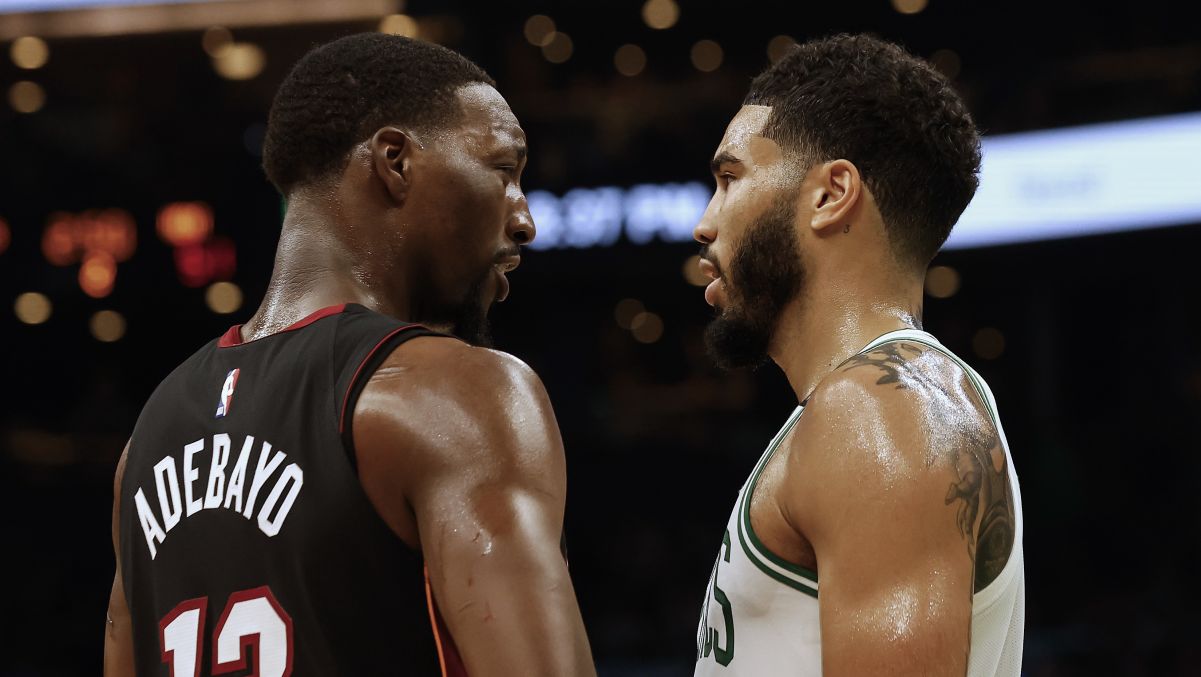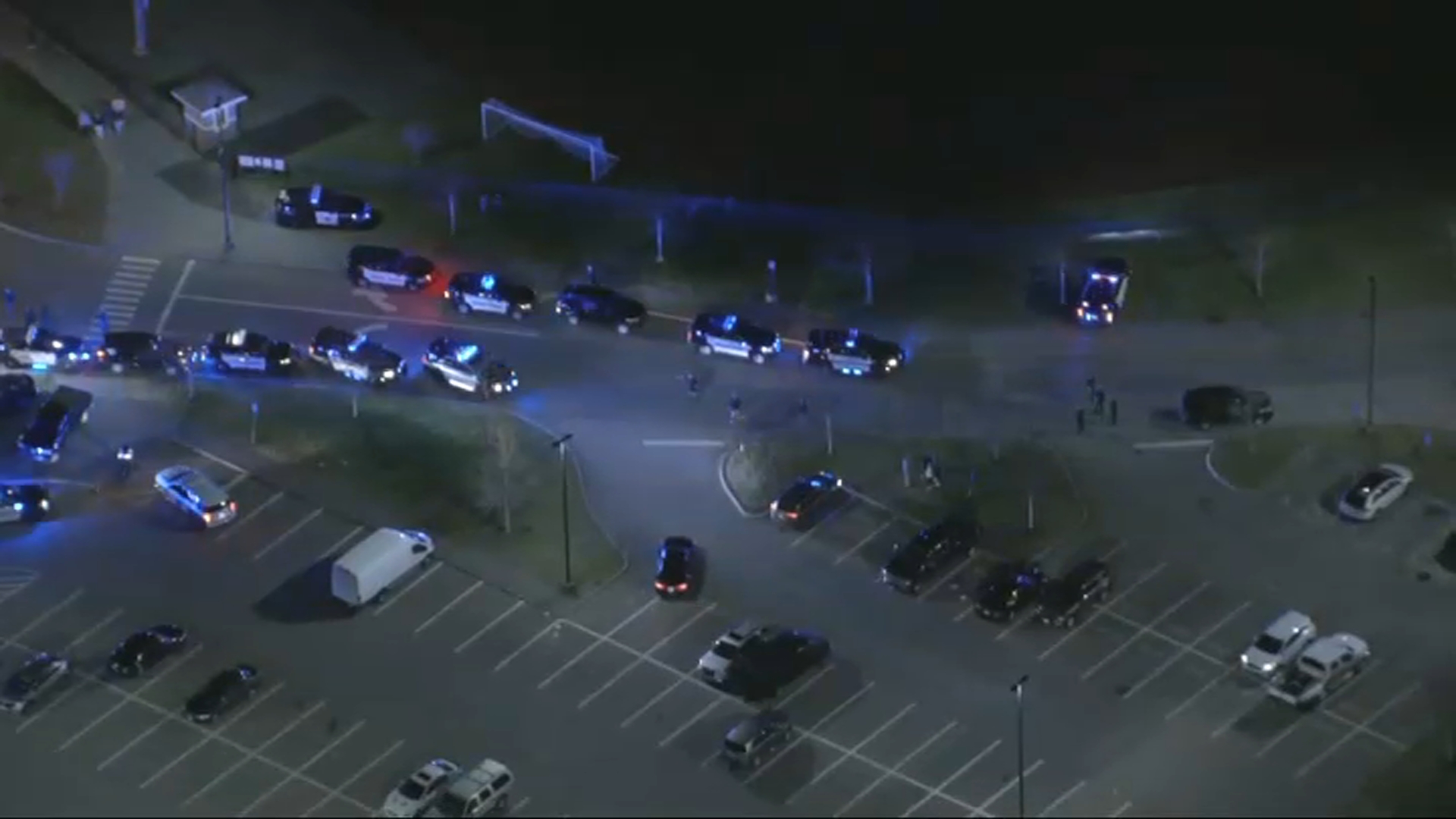How exactly did the Boston Celtics get here?
As we ponder the question of how a team with a seemingly limitless future came unglued so quickly, our minds keep flashing back to September 1, 2017. Kyrie Irving and Gordon Hayward sat at a dais inside TD Garden for an introductory press conference - Celtics brass beaming beside them - before Irving leaned in to tell Hayward, "It's about to be crazy, G."
This isn't the craziness anyone expected. The Celtics were coming off an absurd summer in which they: landed Jayson Tatum at No. 3 and got a glitzy future Kings pick for moving down; won a tug-of-war for Hayward's services, adding a second max free agent beside Al Horford; traded an injured Isaiah Thomas for Irving, giving Boston a top-10-caliber talent and the new face of a franchise that seemed ready for immediate title contention.
The Celtics and president of basketball operations Danny Ainge seemingly could do no wrong for a prolonged stretch leading to Irving's arrival. But over the next 21 months, everything that could have gone wrong, did go wrong.
And the summer of 2019 has become the anti summer of 2017. In the immediate aftermath of the rival Los Angeles Lakers landing Anthony Davis - the superstar that Boston had quietly lusted over in recent years - the Celtics find themselves bracing for the possible exit of All-Stars Irving and Horford, both potentially walking away with no recoup of assets.
The amount of things that had to go wrong to get to this point is flat-out staggering. But here's a not-so-short list of how things came unraveled:
Local
In-depth news coverage of the Greater Boston Area.
* Hayward's ankle injury: Just 46 days after that introductory press conference, Hayward landed awkwardly after going up for an Irving lob five minutes into Boston's season-opener and fractured his ankle. It cost him his first year in green and a follow-up surgery essentially sapped the following summer, leaving him still working his way back for much of this past season.
* False hope: Even with both Hayward and Irving sidelined for the 2018 playoffs, Boston's young core surged to within four minutes of a trip to the NBA Finals. It might have been the worst thing that could have happened to the team. Young players bought into their own hype - even if part of their success hinged on a less-than-daunting East - and, combined with the impeding return of Irving and Hayward, raised expectations to dangerous levels.
* A disastrous season: Weighed down by that burden of expectations and an impossible lack of chemistry, the Celtics stumbled through a 49-win season, one in which Irving often brooded amid speculation about his future. The Celtics clung hard to the notion that they'd figure it all out in the postseason but they never did, getting bounced after four straight listless losses to the Bucks in the East semis.
* Twist of fate: The Kings pick, once seen as the potential jewel in any potential Davis trade package, turned into a stone. Sacramento exceeded all expectations and nearly made the playoffs out west last season and Boston settled for pick No. 14.
* Lucky Lakers: Los Angeles' 2019 first-round pick vaulted to No. 4 on lottery night, equipping a dysfunctional team with the centerpiece of an all-in package to land Davis and pair him with LeBron James out west.
* Power Position for Pels: New Orleans vaulted to No. 1 in that same lottery, assuring them the arrival of Zion Williamson, and strengthening their ability to extract max assets from teams in pursuit of Davis despite only one year remaining on his contract.
* Ghosting Kyrie: The uncertainty surrounding Irving's future, and his seeming lack of communication in the aftermath of the dismal 2018-19 season, left the Celtics unable to put prime young assets on the table for Davis, effectively preventing them from even getting close to offering a package comparable to the Lakers.
* Plan J: Once the Celtics missed on Davis, and with Irving having one foot out to the door to Brooklyn, Boston essentially had to embrace a youth movement and had to be cautious in early discussions with what they could offer Horford for an extension. A team going young would be hard pressed to commit to four years and $100+ million for a player that would be 37 by the end of the deal and that, understandably, left Horford intrigued by a potential heftier payday, likely with a team that's a more surefire contender.
The cupboards are not bare but, as the Celtics embrace that Plan J - building around the young tandem of Tatum and Jaylen Brown - the future is incredibly murky. There is no obvious path back to title contention. There is no obvious choice for the next star to target. There is a reputation to repair as star players flee Boston - or announce they don't want to be here, in the case of Davis - for what they see as greener pastures.
It's ironic, of course, that Horford's arrival seemingly broke the stigma that free agents didn't want to come in Boston. Kevin Durant ultimately elected to sign with Golden State that same summer but the fact that Boston got a meeting with two top free agents, and landed one, suggested that the Celtics were a destination again.
Not a whole lot has gone right since then. The Irving trade seemed like a low-risk, high-reward situation when it happened. But, if you believe in karma, it might just be the demarcation point of when things started to go sideways. While Irving's play was undeniably excellent - the 2019 playoffs notwithstanding - the Celtics might have underrated how his temperament and attitude could impact this team. And, yet, Boston brass couldn't have any idea it would go south as quickly as it did.
It's a reminder that you need a little luck along the way. The Celtics have typically been a franchise that swims in good fortune but it's evaded them for the better part of the past two years.
The Celtics can still be competitive with the players that remain, at least it seems that way with uncertainty around the league. Still, this team is not a contender as currently constituted. With Horford, they had a puncher's chance. Now? Boston can examine sign-and-trade options with Horford that could recoup assets, or sign free agents to short-term deals while positioning themselves for a chance to chase top-tier free agents in future summers. The Celtics still have assets that can potentially be used to chase stars but it's hard to find the next surefire target.
This isn't where the team expected to be. Two years ago, the future was limitless. Now it's shrouded by the clouds of uncertainty.
Click here to download the new MyTeams App by NBC Sports! Receive comprehensive coverage of your teams and stream the Celtics easily on your device.



